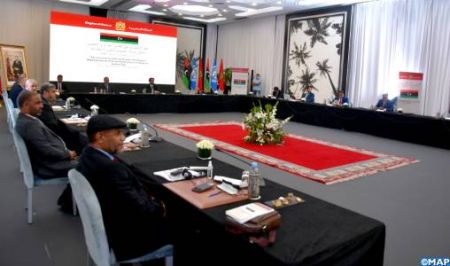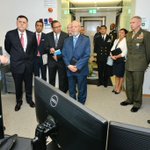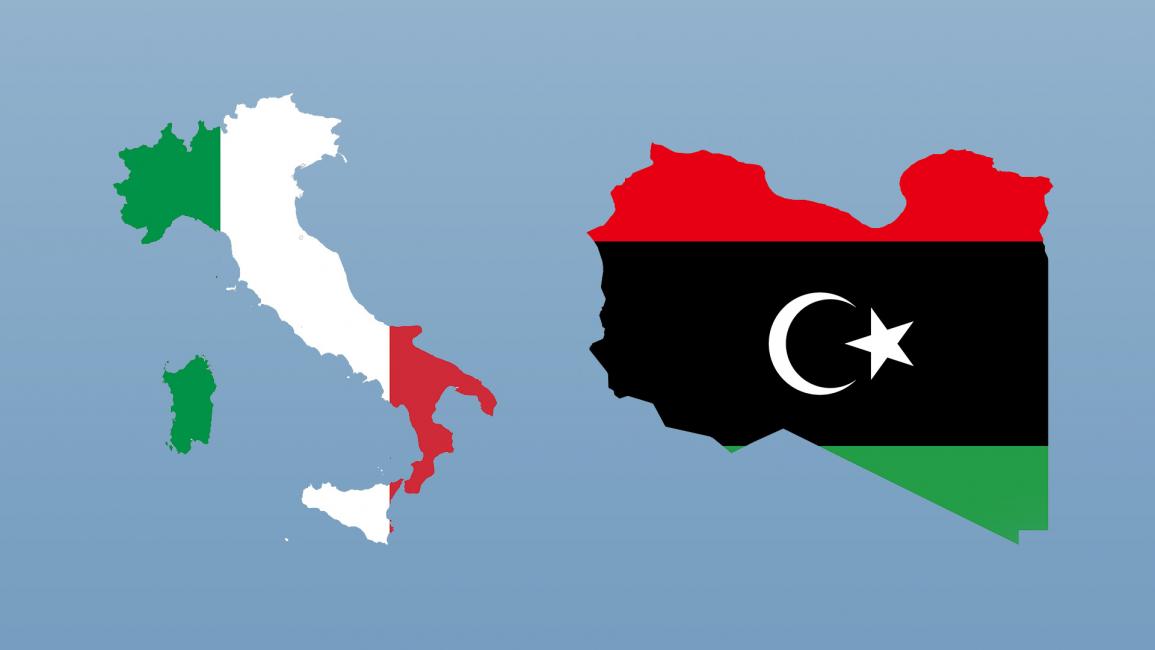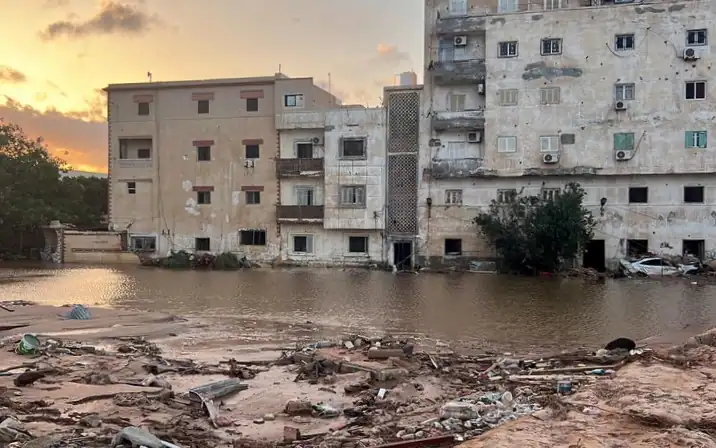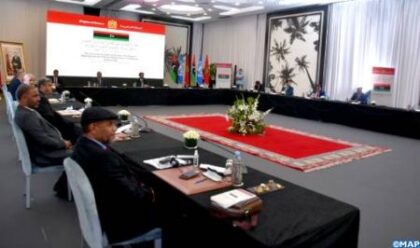 Delegates of Libya’s High Council of State (HCS) and the House of Representatives (HoR) started Thursday a two-day meeting in Rabat, Morocco’s capital, to hammer out a consensus on the electoral law ahead of the presidential and parliamentary elections scheduled for next December 24.
Delegates of Libya’s High Council of State (HCS) and the House of Representatives (HoR) started Thursday a two-day meeting in Rabat, Morocco’s capital, to hammer out a consensus on the electoral law ahead of the presidential and parliamentary elections scheduled for next December 24.
The participating delegations issued a statement saying the Rabat meeting on Sept. 30-Oct.1 is a continuation of the momentum created by the Skhirate agreement in 2015, adding that current talks aimed at finding common ground for holding Dec. 24 elections in a spirit of consensus.
“Talks took place in a friendly and brotherly atmosphere marked by mutual understanding and consensus,” the Libyan delegations said in a statement.
Morocco has often said that it was ready to offer Libyans conditions propitious for finding a purely Libyan solution to the current crisis without foreign interference.
“We call on the international community to support the electoral process in Libya according to mutually-agreed laws and on the basis of the conclusions of the Libyan political dialogue,” the participating delegations said in the statement.
They also urged the international community to “ guarantee abidance by the results of elections through sending international observers to oversee the good proceedings of these elections.”
The delegations expressed gratitude to Morocco for hosting the talks and for supporting the Libyan people in achieving peace and stability in Libya.
US Ambassador to Libya Richard Norland who attended the meeting said that the representatives of both sides are committed to laying the constitutional foundations paving the way for the holding of these elections as planned.
The US diplomat thanked Morocco for hosting this new inter-Libyan meeting, in addition to the previous ones held in Skhirat, Bouznika and Tangier. He expressed hope that the efforts deployed by the Kingdom and the UN would lead to the voting and the formation of a unity government for the return of peace and stability to this country.
Tension sparked lately between the HoR, the High Council of State and the unity government concerning electoral laws. On Sept. 21, Libyan lawmakers passed a vote of no confidence in transitional government, casting doubts over the upcoming elections.
However, Prime Minister Abdul Hamid Dbeibah has vowed that his government will not step down before handing over power to elected officials.
During his latest visit to Rabat, Head of the High Council of State, Khalid Al-Mishri rejected the MPs move of withdrawing confidence from the Dbeibah unity government, insisting it should continue working until elections take place.
Libya’s transitional government replaced two rival authorities, one based in the country’s east and another in the west. Its main goal has been preparing the country for the upcoming presidential and general elections but the politicians have failed to agree on elections laws.
On the sidelines of the UN General Assembly 2021, the foreign ministers of France, Germany and Italy held a meeting on Libya and called for the holding of the voting on the scheduled date.
